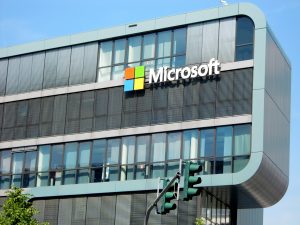What are Rishi Sunak and Sir Keir Starmer’s pledges for government?
Five appears to be the magic number for today’s political leaders – with both Prime Minister Rishi Sunak and Labour leader Sir Keir Starmer offering up the same number of pledges for government.
Below we lay out the plans from the two party leaders – one who is in power and promising to deliver this year, and the other making his pitch to the public for the next election.
Sunak’s five ‘priorities’
The first of Mr Sunak’s pledges – a list he calls “the people’s priorities” – begins with halving inflation by the end of the year.
The figure has hit record highs in recent months, peaking at 11.1% back in October, amid soaring energy costs and rising food prices.
It has begun to fall, coming in at 10.1% this month, and the Bank of England has forecasted it could sink to 4% by the end of the year.
But the government is determined to achieve their goal and play their part at getting the number down.
Next up is growing the economy, which Mr Sunak says he will achieve by “creating better-paid jobs and opportunity right across the country”.
In his speech announcing his priorities in January, he said the UK “needs to put innovation at the heart of everything we do”, adding: “New jobs are created by innovation. People’s wages increased by innovation. The cost of goods and services reduced by innovation.
“And major challenges like energy security and net zero will be solved by innovation.”
The PM said the government would increase public funding in research and development by £20bn, “seize the opportunities of Brexit” for a more flexible regulatory system, and help growing firms get the funding they need.
And he said the government would “deliver on our promise to level up”, with investment in local areas to “boost growth, create jobs and reinvigorate our high streets and town centres”.
Priority three for the prime minister is to make sure national debt is falling which, he said, would allow the government to “secure the future of public services”.
The current level of borrowing or “national debt” is £2.49tn – much higher than in the days before COVID. But borrowing costs have also shot up, leaving the government paying even more back.
This element was already on the rise last year, but shot up significantly last September after the former PM Liz Truss announced her so-called mini-budget, sending the markets into turmoil.
As a result, interest payments on government debt rose by 48% to £7.7bn – up by £2.5bn from September 2021 and the highest level since monthly records began in 1997.
The markets – and the interest rates – calmed after most of Ms Truss’ unfunded tax cuts were reversed by new chancellor Jeremy Hunt, and calmed further still after Mr Sunak took over Number 10.
But the new PM still sees the debt, and the cost of it, as a top priority to address.
Mr Sunak laid out his priorities at the height of the NHS’ winter crisis, with ambulances queuing up outside hospitals and staff staging walkouts over their pay and working conditions.
The sector is also still feeling the sting of the pandemic, with record numbers of people stuck on waiting lists.
The PM said the government was already putting more cash into the NHS and recruiting more doctors and nurses.
But he said he would tackle ongoing issues by “putting patients in control”, using more technology to provide them with “informed choices”.
He also promised a workforce strategy early this year and for the NHS to use more private hospital capacity when needed.
The PM’s final pledge was to stop small boats with people seeking asylum in the UK from making Channel crossings.
The numbers making the treacherous journey have continued to rise in recent years – 2,000 have already done it since the start of 2023, with over 45,000 making the trip last year.
Mr Sunak has said he will stop it happening by introducing a new law this year “making sure that if you come to this country illegally, you are detained and swiftly removed”.
Starmer’s five ‘missions’
First up on the Labour leader’s list is for the UK to secure the highest sustained growth in the G7 group of countries by the end of his party’s first term in power.
He said “sustained” was the key word as it would offer long term improvements for Britain – namely “higher living standards, better public services, more hope and opportunity”.
Sir Keir promised growth would not be centred on London, with “wealth created everywhere, by everyone, for everyone”, and would be “powered by good jobs and stronger productivity in every part of the country”.
And he promised reforms of apprenticeships, planning systems, and to “fix the Brexit deal” as wider parts of his growth strategy.
Second up for Sir Keir is building an NHS that is “fit for the future” – but there is little detail so far of how he plans to do it.
In the speech announcing his missions, he promised to reform health and care services to “speed up treatment, harness life sciences and technology, reduce preventable illnesses and cut health inequalities”.
But the Labour leader is expected to make more appearances over the coming weeks and months to expand on his plans, so watch this space.
As with the NHS, Sir Keir did not offer up a lot of detail on how he planned to make Britain’s streets safe.
There were glimpses of policies, with promises of “reforming the police and criminal justice system, preventing crime early, tackling violence against women and girls and stopping criminals getting away without punishment”.
He also used the famous Tony Blair quote, “tough on crime, tough on the causes of crime”, adding: “You’ve heard it before, but its right!”
But his shadow home secretary Yvette Cooper has been outlining a number of proposals in recent weeks, including a £360m package to recruit 13,000 additional neighbourhood officers and PCSOs.
Mission four was to break down the barriers to opportunity at every stage.
The were again hints at how Sir Keir plans to achieve this, saying his government would focus on “reforming childcare, reforming education, raising standards everywhere and preparing young people for work and life”.
But as we said earlier, we will have to wait for another speech to get more detail around these planned reforms.
Sir Keir’s final mission is one the Labour Party went big on at its conference in Liverpool last autumn, announcing Great British Energy – a new, publicly owned company that will generate renewable sources.
But he said his plan is bigger than one firm as he wants to make Britain a clean energy super power by ensuring electricity in Britain will be zero carbon by 2030.
The leader said he had been talking to businesses and energy workers about the plan, adding: “The conversation always starts with a shake of the head.”
But he says there is a “powerful urgency to make it happen”.
Other policies around this mission include insulating 19 million homes and training people to work in clean energy, so they can become heat pump fitters or green engineers.


